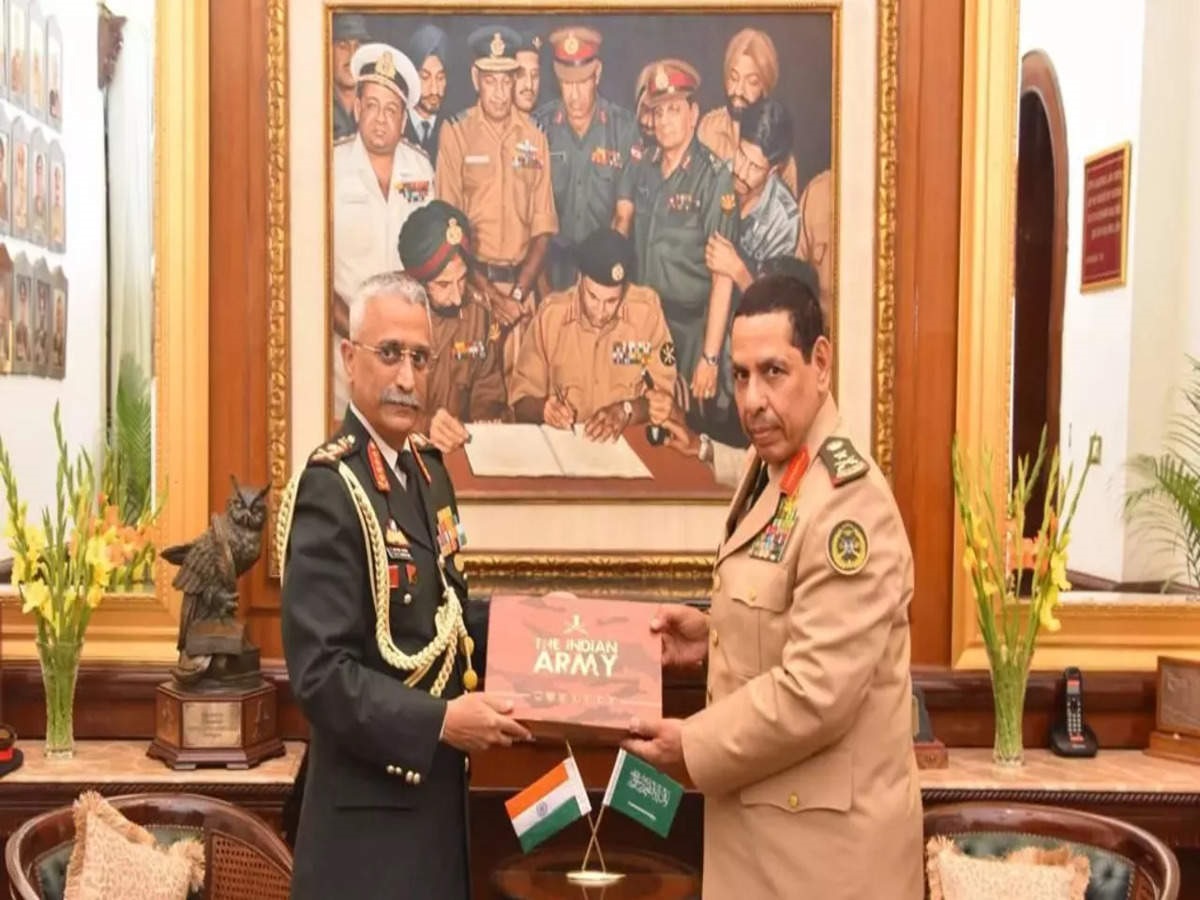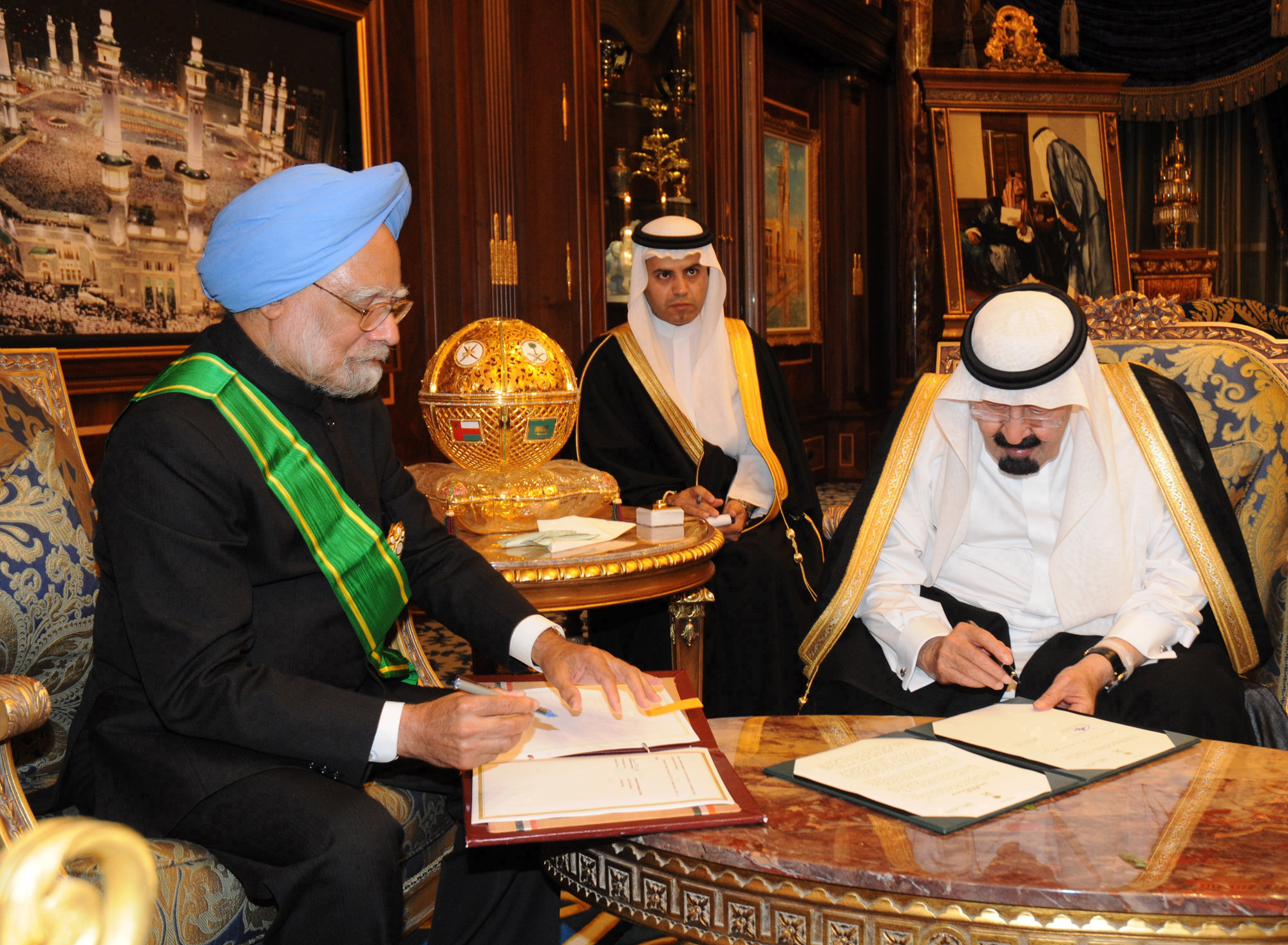
A confident India moves ahead to augment security cooperation in the Gulf region. The two countries’ decade-long efforts for cementing defence ties finally appear to be ready for fruition now.
The decade-long efforts of India and Saudi Arabia for cementing defence ties appear to be now finally ready for fruition. Their efforts for closer defence cooperation between India and Saudi Arabia have been expanded in every aspect of security and national concerns. It includes the area of defence production, as indicated by the signing of a Memorandum of Understanding between Saudi General Authority of Military Industries and India’s Department of Defence Production. They include high-tech drones, helicopters, artillery, specialist vehicles, as well as missiles. The Indian team’s appreciation of the contribution of Raheel Sharif, a former army chief of Pakistan, who heads the Riyadh based Islamic Military Coalition against Terrorism (IMCT) of 41–nation military coalition, has also paved the way for closer cooperation. Earlier, there were apprehensions that the reported decision to give extension to Shairf might adversely affect the ongoing cooperation between the two countries. Interestingly, the continuation of Raheel Shareef, as the chief of the IMCT might have delayed the cooperation, but his professionalism has made him popular. Being scion of a respected Rajput family of Quetta in Pakistan, though later converted to Islam, his family has an unblemished record as soldiers. His name has also not figured among the ‘corrupt’ Pakistani generals, who had laundered millions of USD to Swiss bank accounts, according to some recent disclosures.
However, India and Saudi Arabia have decided to embark upon much closer cooperation for combating terrorism and other related crimes.

The visit of the chief of the land army of Saudi Arabia, Fahad-bin-Abdulla, on February 2022 has finally paved the way for closer cooperation in the strategic affairs among the two countries. The armies of the two countries have planned a joint exercise for the first time, which is expected to be conducted in the latter part of the year, 2022. The visit of Fahad-bin-Abdulla, has taken place following the visit of General N.M. Naravane, the Indian army chief, to the kingdom. The picture of the meeting of the two army chiefs in New Delhi has recently been published in a Saudi paper. A number of Pakistani journalists and commentators have objected to the publication of the meeting with the 1971 picture of the surrender of the Pakistani army in Dacca before the Indian general. However, the Indian sources have just dismissed the protests, which they consider irrelevant, as it was ‘not deliberate’ or meant to hurt sentiments of any country.
The growing India-Saudi relations have changed the strategic dynamics of the region related to security. It had begun following the visit of then Indian Prime Minister Manmohan Singh to the Kingdom in 2010, when the two sides had signed the Riyadh Declaration. It is considered an important marker in the bilateral ties, elevating the relationship to a strategic partnership. It was further augmented during the two visits of Prime Minister Narendra Modi to Saudi Arabia. He first visited the kingdom in 2016 and then in 2019. It was warmly reciprocated during the visit of Saudi Crown Prince Mohammad bin Salman to India in 2019. These visits have been important in consolidating the bonds between the two sides.
Apart from condemning terrorism, extremism and violence, the two countries have also decided to combat terrorism together. For the past one decade, the countries have been exchanging vital information related to terrorism, money laundering, narcotics, and arms and human trafficking. In 2012, a Memorandum of Understanding was signed during the visit of the then Defence Minister AK Antony to Riyadh. It was further augmented with another memorandum inked in February 2014. There were as many as five meetings of the Joint Committee on Defence Cooperation (JCDC) with the two sides deciding to engage in training and capacity building exercises, intelligence sharing, and maritime security.
The recent high-level political visits between India and Saudi Arabia are a sign of greater political attention and demonstration of the intent on both sides to shed their traditional approach, in which Pakistan and Jammu and Kashmir were significant sticking points. This was evident during Indian National Security Advisor Ajit Doval’s visit to Saudi Arabia in October 2019, when the Saudi government reportedly stated that Riyadh “expressed understanding of India’s approach and actions in Jammu and Kashmir,” a comment that referred to the abrogation of Article 370.
Meanwhile, the navies of the two countries have also started cooperation among themselves. The join naval exercises were postponed due to the Covid-19 pandemic. The Royal Saudi naval forces is already in close liaison with the Indian Navy and the Coast Guard, with Indian ships undertaking a number of goodwill missions to the Saudi ports. During one such visit by Indian Coast Guard ship Samudra Paheredar in February 2020, which received wide media coverage, the Indian Embassy in Riyadh issued a statement that these visits “are symbolic of our desire to enhance our cooperation with the kingdom in matters of defence.” In an effort to further augment maritime ties between New Delhi and Riyadh, Admiral Sunil Lanba, now retired, chairman of the chiefs of staff committee and chief of the naval staff had visited Saudi Arabia in February 2018, during which he met the Saudi Deputy Defence Minister Mohammad bin Abdullah Al-Aysesh as well as the heads of the various military services. In addition to these meetings, Lanba also visited the Naval Operations Centre, Naval Fire and Rescue School, and Western Fleet at Jeddah, which also involved a visit to HMS Dammam, an Al-Riyadh class frigate.
Saudi Arabia has always been keen on strengthening maritime security cooperation with India in the western Indian Ocean, which includes some of the busiest shipping lanes, including those in the Red Sea, the Gulf of Aden, the Arabian Sea, the Gulf of Oman, and the Persian Gulf. These are incidentally of enormous interest to India as well, as highlighted in the Indian Navy’s Maritime Security Strategy issued in 2015. The Saudi armed forces have been regularly attending training programs at Indian military institutions, including the National Defence College, the College of Defence Management and the Defence Services and Staff College.
An article written by a senior Indian diplomat published in a Saudi daily is an expression of satisfaction. N. Ram Prasad, deputy chief of mission at the Indian Embassy in Riyadh, recently wrote in Arab News that “the direction of the India-Saudi bilateral defence relationship remains extremely positive with several initiatives being taken,” also noting that both countries “are ascending powers and major players in their respective regions and are natural partners in addressing the various security challenges confronting the region.”












